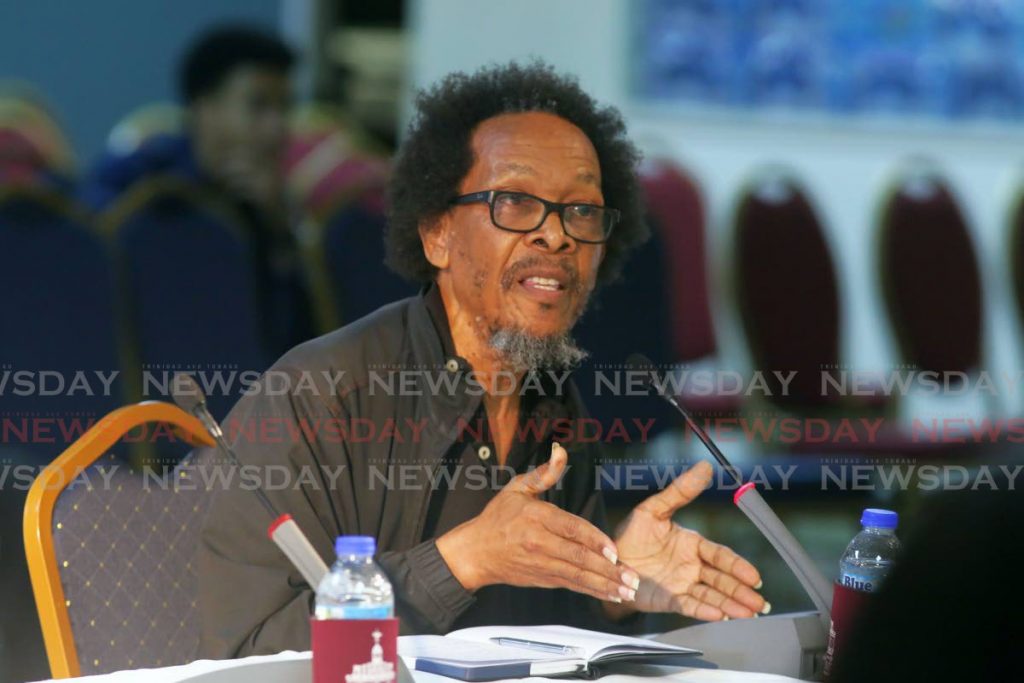Tobago economist: Is THA bond a national debt?

Tobago economist and Progressive Democratic Patriots supporter Dr Vanus James said the island desperately needs to grow its stock of capital to increase its growth and development rate, and escape its current excessive dependence on transfers from Trinidad.
On May 28, the Tobago House of Assembly (THA) issued its maiden bond in a bid to raise $164.175 million. A media release from the division said the bond is to fund capital expenditure and accelerate the island’s development. The bond, approved in 2019 as part of the THA’s alternative financing policy initiative, has a six-year tenure at a fixed rate of 5.2 per cent paid semi-annually.
During a recent interview with Business Day, James acknowledged the importance of the bond, but said there must be checks and balances.
He said citizens know Tobago needs to contribute adequately to growth and diversification of the national economy. Investment financing, he said, will always be a critical issue in pursuing the required investment programme, and debt financing is one of the options to be considered alongside foreign direct investment.
“Though the option became available 25 years ago in Section 51A of THA Act 40 of 1996, the THA is only now issuing its first bond in the local market to fund capital expenditure.”
He was wary that the announcement did not speak on any contingent liabilities of the bond for TT.
“The public has been informed via Executive Council press release. The public has not been informed of any contingent liabilities of the bond for TT.
"Surely investment in Tobago is risky business, but the Executive Council has not reported any associated contingency that is likely and the amount of the liability that can be reasonably expected.”
He said the requirement under Section 51A of THA Act 40 of 1996 that the minister of finance must approve it makes any Tobago borrowing a direct liability of TT.
“In any event, what matters is that the bond counts as part of the national debt stock and should only be undertaken if it offers a credible risk-adjusted promise of a significant growth and development effect. So far, Tobagonians have received no evidence-based assurance that this is the case.”
He said given the way Tobago is funded at this time, provisions will have to be made in the national budget for payment of the obligations associated with the bond. James said these would normally have to be counted as part of the Tobago allocations.
“The posture of the standing Secretary of Finance and the Economy, Assemblyman Joel Jack, was one of sincere appreciation to the Minister of Finance, the Honourable Colm Imbert. He suggested that the exercise of the borrowing option now promises to accelerate the pace of Tobago’s development.
"But is this a reasonable expectation, and is the interest rate on the bond reasonable? Does the expected return in the form of the growth rate generated by the total investment programme justify the 5.2 per cent interest rate paid? How can the national community and the Tobago public judge?”
James said the stalemate within the THA owing to the tied January 25 THA election meant there is no functioning democratic monitoring system in place in Tobago.
“There is no THA to investigate and test properly what the Executive Council is doing and report to the people.
"There is no THA to monitor whether the borrowed funds are put to uses that meet any of the three tests of credible development contribution.
"There is no THA to monitor whether the expenditures are even put to intended uses, as distinct from being diverted corruptly to fit the political purposes of the PNM, which runs what passes for an Executive Council.”
He said in this context, it is virtually impossible to assess objectively whether the 5.2 per cent is a reasonable cost of capital.
“Clearly," he argued, "the public is being kept in the dark by the current holdover Executive Council, which is now illegitimate and dictatorial, maintaining a sinister and dangerous grip on unsupervised power five months after the last THA elections.
"In the absence of democratic government in Tobago, additional bonds issued like this can be expected in the next four years. Indeed, because of its lack of transparency and accountability, it can be expected that this approach to development financing in Tobago will be increasingly utilised by the current unsupervised Executive Council.”


Comments
"Tobago economist: Is THA bond a national debt?"